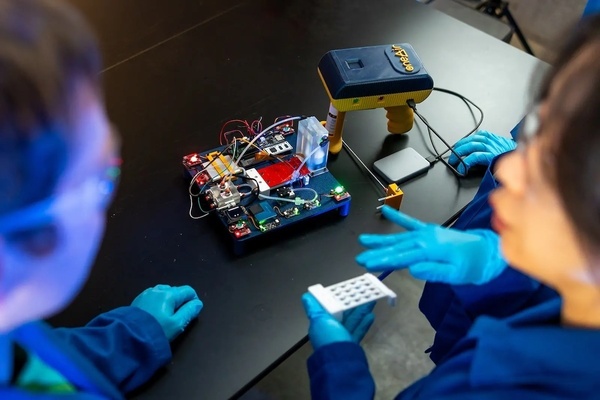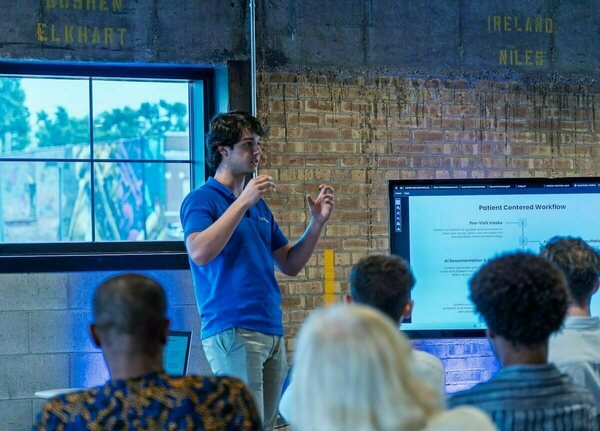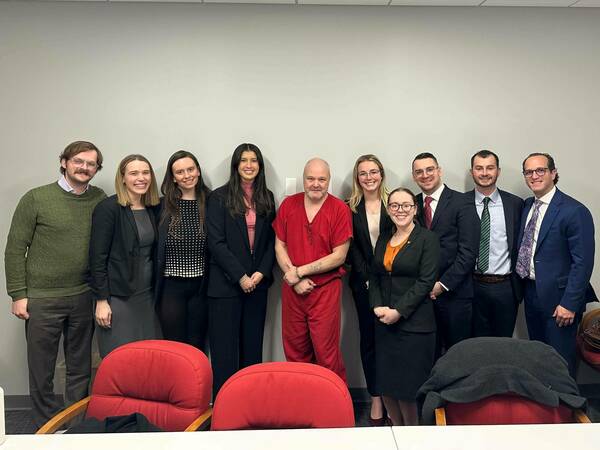Notre Dame researchers leverage social media data to develop a new AI-driven model for opioid misuse prevention in teenagers and young adults
Teenagers spend over five hours on social media each day – their online interactions might reveal clues that save them from the opioid epidemic.

Graduating classes are dwindling as the opioid epidemic claims the lives of high school and college-aged adolescents from communities throughout the United States.
America’s increased activity on social media platforms has heightened the risks of opioid overdose and drug misuse, while research to promote personalized health, safety and intervention recommendations to the nearly thirty percent of at-risk Teenagers and Young Adults (TYAs) has been lacking.
Now, researchers at the University of Notre Dame are developing a new artificial intelligence (AI) driven paradigm leveraging social media data to provide insights into personalized interventions for reducing TYA opioid misuse and death.
Recently, the US National Science Foundation awarded a $1.5 million grant for a four-year project to use large-scale social media data generated from TYAs, roughly ages 15 to 25, to develop a messaging platform tailored to individual risks and community contexts aiming to promote community resilience against opioid misuse and addiction.
“Opioid overdose deaths have continued to increase across the country; specifically, TYAs are disproportionately affected by and particularly vulnerable to misuse and addiction. Parents of at-risk teens who have been impacted by the opioid epidemic frequently contact me to share their stories,” said Yanfang (Fanny) Ye, the Galassi Family Collegiate Professor in Computer Science and Engineering and Associate Director of Applied Analytics for the Lucy Family Institute for Data & Society.

Ye will lead the project, “A New AI-driven Paradigm to Promote Community Resilience for Teenagers and Young Adults in Preventing Opioid Misuse and Addiction.” Input from fourteen community partners, including the parents of at-risk youth, medical clinicians, emergency response services personnel, representatives from the National Institute on Drug Abuse (NIDA) and public school leadership will help direct the project’s design and development and incorporate linkage to community-based prevention and treatment services.
An expert in AI and machine learning, Ye has conducted multiple projects to combat the opioid epidemic through AI innovation. In 2023, her work was broadcast on NBC as part of the University’s award-winning “What Would You Fight For?” series, which showcases the work, scholarly achievements, and global impact of Notre Dame faculty, students and alumni.
“By analyzing data collected from platforms where TYAs are actively engaged, we can develop a valuable network of relationships that identify the risks of opioid misuse, and offer customized prevention and intervention options directed at this distinct yet vulnerable age group,” Ye said.
Developing an application to detect at-risk TYAs is pivotal to the project’s success.
Ye is working with researchers from the Applied Analytics & Emerging Technology Lab (AETL) within the Lucy Family Institute to apply a graph-based deep learning approach to identify TYAs who are most likely to be at risk of opioid misuse and addiction. Graph neural networks (GNNs) are artificial intelligence applications that are designed to build relationships between visualizations, models or graphed data. Recently, GNNs have been used for weather forecasting models and for the discovery of novel antibiotics and polymers.
Ye and the AETL team will use the GNNs and large language models (LLMs) to derive key risk factors from identified at-risk groups to develop a safety-enhanced multi-modal learning framework for tailored message generation. The applications will provide personalized, interactive and educational messages to TYAs based on their community characteristics and individual circumstances in preventing opioid misuse and addiction.
“The University of Notre Dame is guided by a moral imperative to address the challenges of society’s most vulnerable populations, including those facing the dangers of the opioid epidemic” said Nitesh Chawla, founding director of the Lucy Family Institute and the Frank M. Freimann Professor of Computer Science and Engineering. Chawla is a co-principal investigator on the project. He adds, “Through data-driven AI innovation, the Lucy Family Institute is committed to providing impactful research that can promote resilience and well-being for future generations.”
Other co-principal investigators on the project include Erin Winstanley, professor of medicine at the University of Pittsburgh, and Chuxu Zhang, associate professor of computer science and engineering at the University of Connecticut.
The outcomes of the project will be made publicly available for wide distribution.
For more information about the Lucy Family Institute’s Applied Analytics & Emerging Technology Lab, please visit the website.
To learn more about Ye’s current research, please visit http://yes-lab.org/.
Contact:
Christine Grashorn, Program Director, Engagement and Strategic Storytelling
Lucy Family Institute for Data & Society / University of Notre Dame
cgrashor@nd.edu / 574.631.4856
lucyinstitute.nd.edu / @lucy_institute
About the Lucy Family Institute for Data & Society
Guided by Notre Dame’s Mission, the Lucy Family Institute adventurously collaborates on advancing data-driven convergence research, translational solutions, and education to ethically address society’s wicked problems. As an innovative nexus of academia, industry, and the public, the Institute also fosters data science and artificial intelligence (AI) access to strengthen diverse and inclusive capacity building within communities. Our vision is to become the preeminent intellectual beacon, inspiring collaborative, equitable, and impactful data and AI innovations as a global force for good.
Latest Research
- Fighting for Better Virus DetectionAn electronic nose developed by Notre Dame researchers is helping sniff out bird flu biomarkers for faster detection and fewer sick birds. Read the story
- Notre Dame’s seventh edition of Race to Revenue culminates in Demo Day, a celebration of student and alumni entrepreneurship…
- Managing director brings interdisciplinary background to Bioengineering & Life Sciences InitiativeThis story is part of a series of features highlighting the managing directors of the University's strategic initiatives. The managing directors are key (senior) staff members who work directly with the…
- Monsoon mechanics: civil engineers look for answers in the Bay of BengalOff the southwestern coast of India, a pool of unusually warm water forms, reaching 100 feet below the surface. Soon after, the air above begins to churn, triggering the summer monsoon season with its life-giving yet sometimes catastrophic rains. To better understand the link between the formation of the warm pool and the monsoon’s onset, five members of the University of Notre Dame’s Environmental Fluid Mechanics Laboratory set sail into the Bay of Bengal aboard the Thomas G. Thompson, a 274-foot vessel for oceanographic research.
- Exoneration Justice Clinic Victory: Jason Hubbell’s 1999 Murder Conviction Is VacatedThis past Friday, September 12, Bartholomew County Circuit Court Judge Kelly S. Benjamin entered an order vacating Exoneration Justice Clinic (EJC) client Jason Hubbell’s 1999 convictions for murder and criminal confinement based on the State of Indiana’s withholding of material exculpatory evidence implicating another man in the murder.
- Notre Dame to host summit on AI, faith and human flourishing, introducing new DELTA frameworkThe Institute for Ethics and the Common Good and the Notre Dame Ethics Initiative will host the Notre Dame Summit on AI, Faith and Human Flourishing on the University’s campus from Monday, Sept. 22 through Thursday, Sept. 25. This event will draw together a dynamic, ecumenical group of educators, faith leaders, technologists, journalists, policymakers and young people who believe in the enduring relevance of Christian ethical thought in a world of powerful AI.













